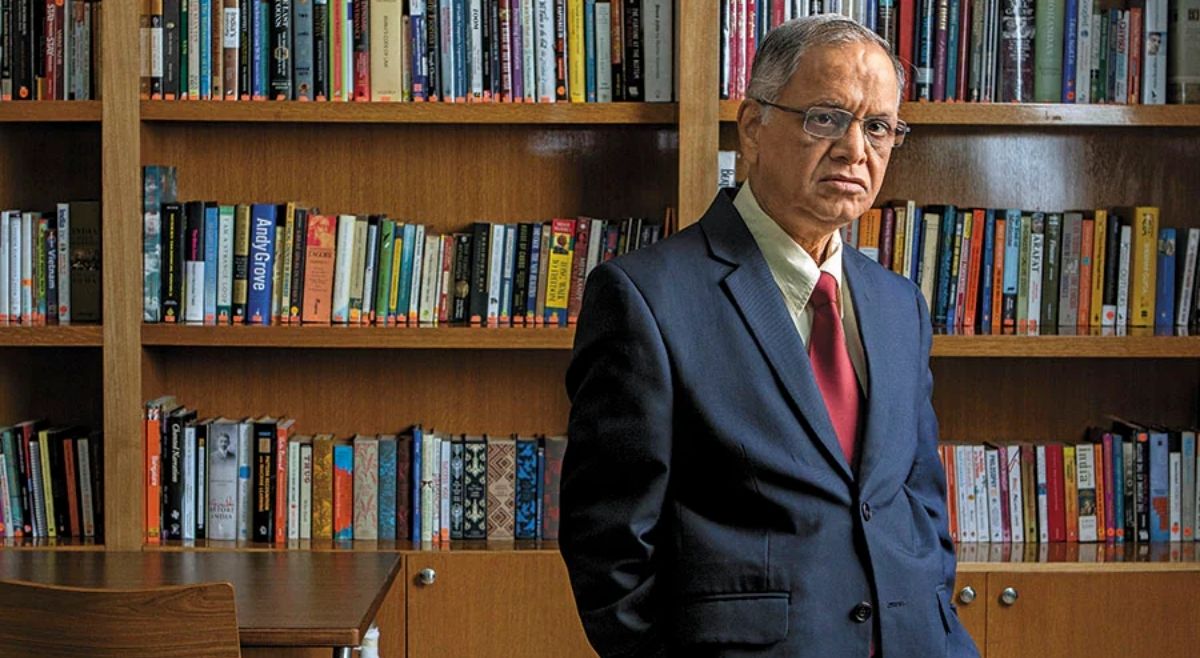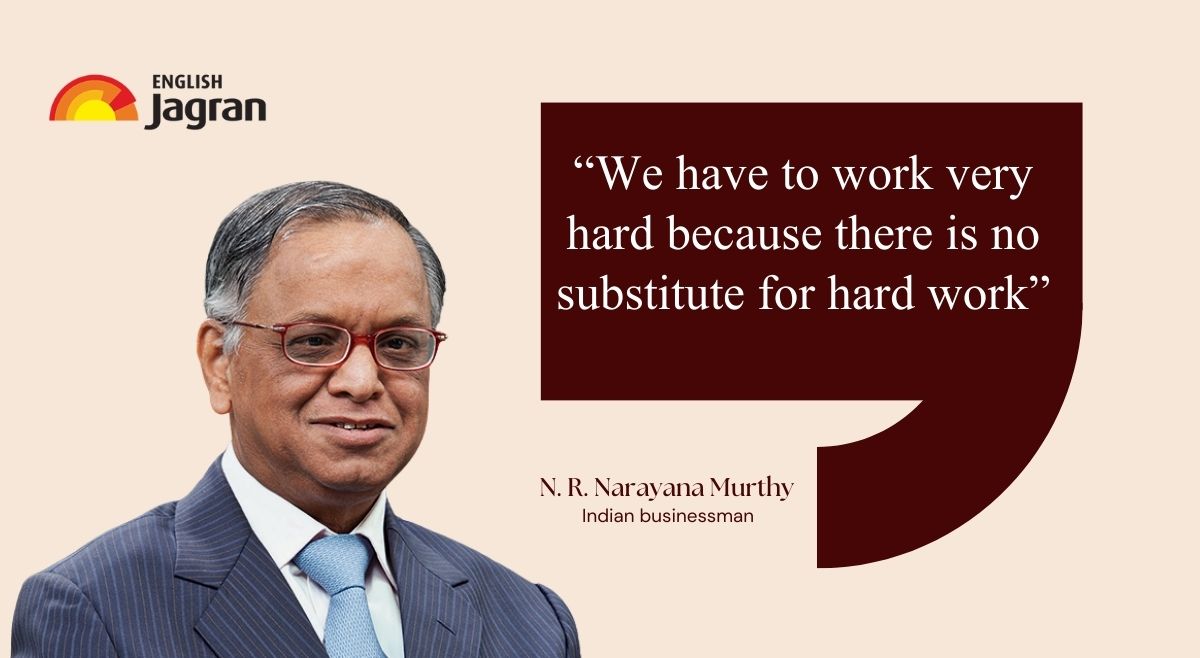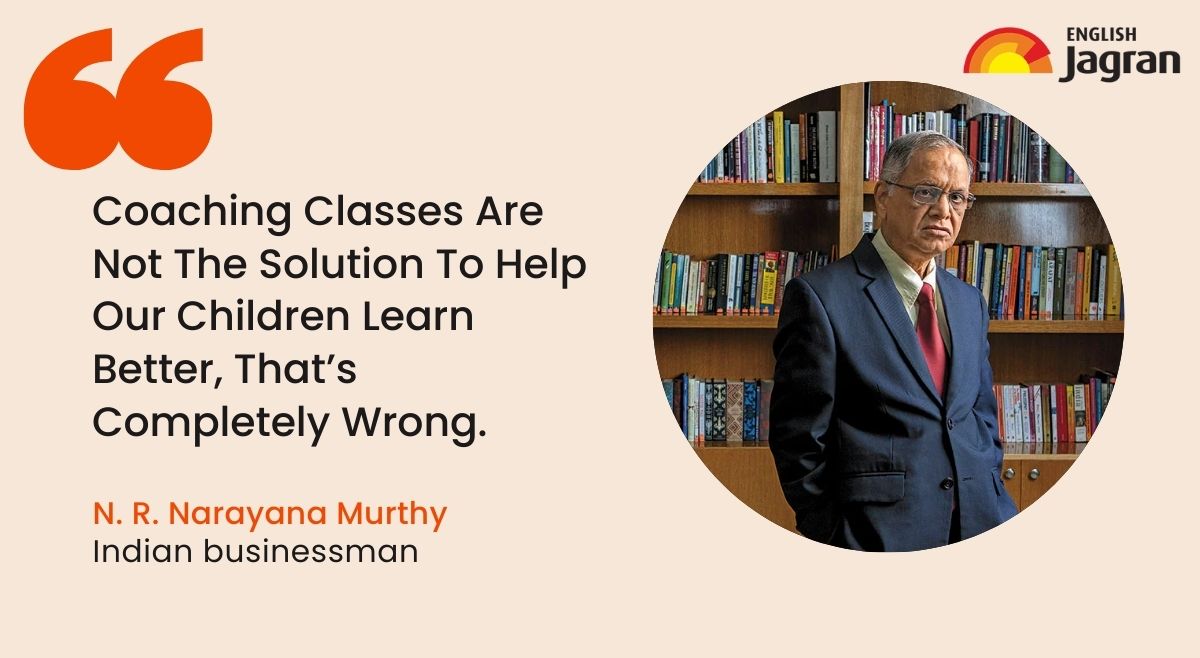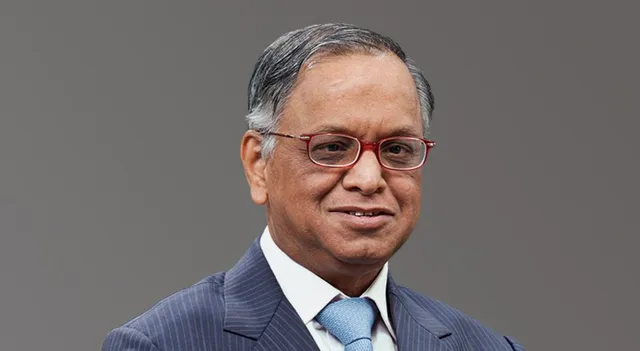- By Ridam Sharma
- Wed, 05 Feb 2025 02:24 PM (IST)
- Source:JND
5 Statements By Narayana Murthy: N. R. Narayana Murthy was born on August 20, 1946, in Karnataka, India. His visionary leadership transformed Infosys, from an ordinary startup in 1981 into a powerhouse of technology and innovation. Murthy served as CEO of Infosys until 2002 and then influenced the company as chairman and chief mentor till year 2011. He is also recognised as the ‘father of the Indian IT sector.’ The man of substance has received numerous awards throughout his career, including the legendary Padma Vibhushan and the Ernst and Young World Entrepreneur of the Year award that highlights his contributions to the business world and economic landscape. His statements reflect his commitment to hard work and discipline but often clash with contemporary views on work-life balance and parenting, leading to widespread debate across various platforms.
The co-founder of Infosys is known for his insightful yet strongly opinionated statements that stir discussions across all social media platforms and public forums.

Statements By Narayana Murthy That Stirred A Storm ( Image Credit: Forbes Website)
Check out 5 statements by Murthy that stirred a storm on the internet:
1. Parenting
"If the parents are going and seeing movies and then telling 'children, no, no, you study,' that won't work, parents should walk the talk, can't watch movies and ask children to study"
Over the years, Narayan Murthy has come across as a straightforward man and at times he has been put into the spotlight for this trait of his. Recently, he sparked outrage when during an interview at an event in Bengaluru, he shed his views on parenting and about how parents watch movies while wanting their children to concentrate on their studies. While his wife used to spend 3.5 hours every day with their kids studying. According to Murthy parents must create a disciplined environment for the betterment of their children. This remark led to numerous debates on social media, where user's major concern was unrealistic expectations placed on parents, especially those who legitimately struggle to balance work and parenting.
Work-Life Balance
“I don't believe in work-life balance, thankfully I was a little bit disappointed in 1986 or something when we moved from 6 days a week to 5 days a week. I mean I was not very happy with that. I think in this country we have to work very hard because there is no substitute for hard work. Even if you are the most intelligent guy, you need to work hard, therefore I am sorry I have not changed my view, I will take this with me to my grave, I am very proud of having worked very hard.”
Murthy's assertion at the CNBC Global Leadership Summit that young Indians should be prepared to work 70 hours a week to enhance national productivity has been one of his most debatable statements. He thinks hard work has no substitute and urged the youth to adopt a strong work ethic similar to that of post-war Germany and Japan. This comment was met with strong criticism, as he directly or indirectly was promoting an unhealthy 'hustle culture' and shrugged away the importance of work-life balance. His statement was firmly disregarded by working women who juggle multiple responsibilities, from house chores to job responsibilities.

Statements By Narayana Murthy ( Image Credit: Jagran English)
The Coaching Class Culture
“Coaching classes are not the solution to help our children learn better, that’s completely wrong.”
During discussions about education, Murthy criticised coaching classes, claiming they were unnecessary for students who pay attention in school. He argued that relying on coaching reflects poorly on both students and parents. This perspective faced backlash from those who believe coaching can provide additional essential support in India's competitive educational dynamic.

Quotes By Narayana Murthy ( Image Credit: Jagran English)
Less Fortunate Needs To Work Hard
“Learning from experience, however, can be complicated. It can be much more difficult to learn from success than from failure. If we fail, we think carefully about the precise cause. Success can indiscriminately reinforce all our prior actions…If we are not in a position to work hard, then who will work hard?”
Murthy's defence of his 70-hour workweek suggestion included remarks about the obligation of educated individuals to work hard for the less fortunate in society. He maintained that those who benefit from government-subsidized education owe it to others to exert maximum effort in their careers. This rationale has been viewed as tone-deaf by critics who argue that it oversimplifies complex socio-economic challenges.
Opposition To Remote Work
“Please don't fall into this trap of I will moonlight, I will do work from home, I will come to the office three days a week."
Narayan’s comments on remote work also drew mixed reactions. He suggested that a work-from-home model is unsuitable for India due to its unique socio-economic conditions, such as multi-generational households and inadequate internet infrastructure. The statement stirred a storm in India about the country's feasibility of remote work, with many arguing for its potential benefits in a post-pandemic world.

